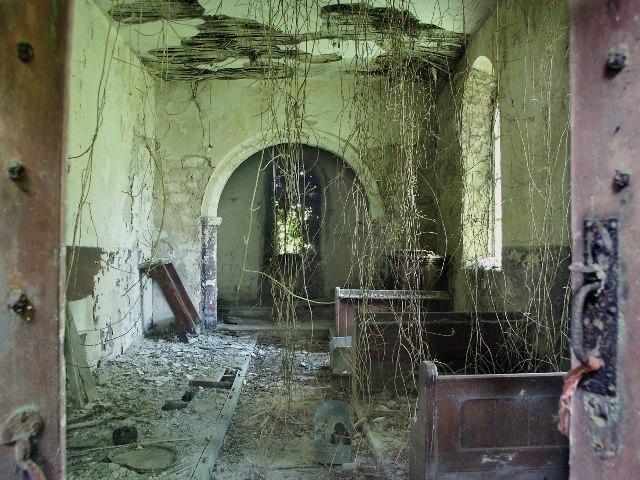 As the year draws to a close it is natural for us to look back and assess the previous twelve months, counting up losses and gains, failures and accomplishments. In the literary world people are listing their triumphs: books published, proposals accepted, poems printed, awards given. My own list is a little paltry in this regard. It doesn’t help that I don’t keep especially good track, either, I suppose.
As the year draws to a close it is natural for us to look back and assess the previous twelve months, counting up losses and gains, failures and accomplishments. In the literary world people are listing their triumphs: books published, proposals accepted, poems printed, awards given. My own list is a little paltry in this regard. It doesn’t help that I don’t keep especially good track, either, I suppose.
Off the top of my head: other than my writing here for Patheos, I published several essays at the now-defunct digital platform for Image Journal, and one at Plough. I had several poems published in print and digital publications, and several more accepted for publication next year. My chapbook collection or poems, Talking to Snakes, was accepted for publication with Ethel in 2020. And I was nominated for a Pushcart Prize, for the second year in a row. Not negligible – but, on the other hand, no cash awards, no big pitches accepted, and my literary novel about fracking and hereditary curses, The Dirt, still floats hopefully in a liminal zone, waiting for a publisher or agent.
Given the fact that I am also embarking on a new life in which the likelihood of returning to an academic career I worked hard for, and was good at, grows increasingly slim, it’s easy for me to be discouraged. It’s one thing to find yourself lost in a dark wood in the middle of your life, quite another to figure out how to make a homestead there.
Maybe it’s partially the depressing political, economic, and cultural scene we find ourselves in, the sense of hopelessness in the face of bigotry and hate. It may be the feeling of being helpless before a tide of history. But it’s also true on a personal level that I am inclined to look back on this year as a year of failure.
Obsession with material success
But perhaps this frustration is due partially to living in a culture which prizes only success and accomplishment in material things. We must be ever richer, more famous, more popular, more powerful, better dressed. When we count our accomplishments, are we thinking about the choices we made on behalf of truth and justice – even if we won no acclaim?
Even if we failed?
What have you done, in this waning year, that you count as an accomplishment, even if no one is rewarding you for it – even if you are being punished for it?
When I look back on the year I can say that I have learned a little bit about how to draw lines of protection, a little bit about patience, a little bit about when to stand my ground, or when to retreat.
I have not grown softer, meeker, quieter, humbler. I am less obedient now than I was before. Sometimes I am silent, when I feel a person is not entitled to my truth or secrets. Often, I have been angry, but I am no longer convinced that my anger is something I should always be ashamed of. But I have not jettisoned the concept of shame – only reevaluated it.
I should be ashamed of my moments of cowardice, selfishness, or petty arrogance.
I am ashamed of the moments when I used what small powers I have unjustly, against the weak or helpless or dependent.
I am not one bit ashamed, however, of having used my voice against the oppressors in power: the abusive priests, the spiritual leaders who covered for them, the racist ideologues, the oppressive demagogues. Yes, I annoyed a lot of people, but I’m not ashamed of that, either.
Exhaustion at the year’s end
I have been talking a lot about my feelings of failure with friends of my own age, writers who are also exhausted, women who feel unseen in a world that wants to use us for free. We wonder what all the work has been for, and why we even bother anymore. We look back at all the wrong turnings we took, the trolley-car-problem moments where we made the wrong choice. We look at everything we lost because of those choices.
Earlier this year I wrote a poem about “the year all the women went to sleep.” In the poem, the women just stop, curl in hibernation. I wanted to evoke a sense of a winter sleep of deep weariness, to show how worn out we are with trying to protect so much, with failing to protect so much.
I didn’t want to be curled in futile exhaustion like a sleeping larva, though. I wanted to be glamorous. I wanted cocktails and book-launch parties. Or at the very least, to have all my student loans paid off.
This is nothing, though. My failure is nothing. I don’t just mean, my failures are mostly small ones, and my complaints mostly petty (though this is true, too). I mean failure itself, the entire concept of having shot at a mark, and missed, is nothing when one considers the great sweep of history. It does not mean what we think it means.
We have this concept of the “mute inglorious Milton” – the great genius undiscovered, the splendid voice that went unheard. This is especially true when we think of the women artists and thinkers whose work was suppressed, the artists and thinkers who were brutally silenced because they were racially other, the queer writers who were bullied, beaten, imprisoned.
Consider all the Jewish writers, artists, and musicians who perished, forgotten, in the death camps – whose bodies turned to ash, whose names were lost.
This is not a world in which success necessarily means triumph. This is not a world of just balances and even measures.
In this world, why do I think I am owed a fancy book deal or a cocktail party?
The work of justice
Genocide, war and famine are happening even now. Our own nation is committing crimes against humanity for which we will be held accountable. Forests are burning. Ice caps are melting. The seas are filled with garbage. What do my lists matter? Who owes what to whom?
I think that what we are owed is justice. And I think that, also, justice is what we owe. It is our work, heavy work, tiring work, work where we often miss our turning and blunder in the dark. This is a work that has failed often, not just at our hands, but in all hands, over and over, through the cycles of time. Humanity is itself exhausted with this labor, our backs to the grindstone, our plows in rocky ground, brittle blades breaking, bones burnt and forgotten. Many of us are only on the edges of it, but that doesn’t mean we are in a place of safety, or can decently ignore what is happening outside our secure enclosures.
This is the world in which there are no guarantees. If you are a great saint or hero, chances are you’ll be murdered, after all. Like they murdered God.
(Good thing I’m not a great saint or hero, I think).
Yet we keep on.
image credit: St_Peters_Church_Low_Toynton_-_geograph.org_.uk_-_99273.jpg















